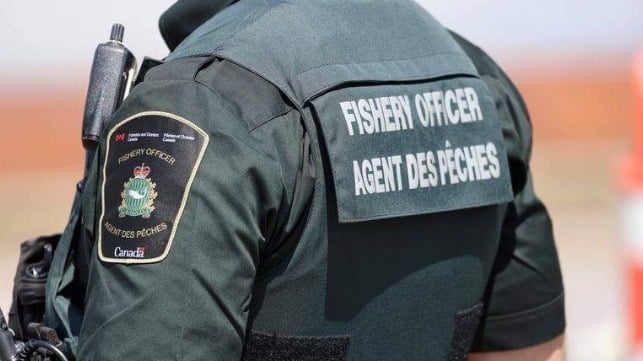Canada's Fisheries Officers Need Better Body Armor to Handle Armed Gangs

Canada's federal labor investigators have found that Canadian fisheries officers need better body armor and training to keep them safe while interacting with armed criminals, an increasing issue in Nova Scotia's lucrative lobster trade.
After voicing concerns about an increasingly dangerous threat environment on the water, an estimated 50 percent of the Fisheries and Oceans Canada (DFO) field officers in Nova Scotia refused to go out on duty, and they filed refusal-to-work petitions with Canada's federal workers' rights regulator, the Labour Program. The program's compliance division investigated the petitions and agreed that DFO officers need more to stay safe while dealing with well-armed criminals and gangs.
In a report obtained by the Canadian Press, the Labour Program found that DFO officers in the Maritimes regularly confront suspects carrying weapons, including cases where the suspects are known to have a semiautomatic rifle on board. "Their current body armor does not protect them [against this class of weaponry]," explained Shimen Fayad, president of the Union of Health and Environment Workers, speaking to CTV Atlantic.
The inspectors also cited officers' interactions with "outlaw motorcycle gangs are armed with firearms" and "convicted violent criminals" while performing their mission. Some suspects in illegal-fishing enforcement actions have made direct threats against DFO officers or their families, either in person or online.
The labor department concluded that the fisheries officers do not currently have enough training or protective gear to keep them safe on an increasingly dangerous waterfront. It ordered Fisheries and Oceans Canada (DFO) to rectify this before sending the officers back out to work in the field.
“We have taken action to address the direction received," a DFO spokesman told The Canadian Press, emphasizing that the officers are returning to work. "Fishery officers are dedicated, well-trained professionals, and acts of violence and threats towards them will not be tolerated."

that matters most
Get the latest maritime news delivered to your inbox daily.
Local fishermen are enthusiastic about getting a more muscular law enforcement presence out on the water, because criminals are taking an excessive share of the catch.
"We want real, tangible enforcement activity placed upon the illegal, black market lobster activity that's ongoing throughout the Maritimes," said Dan Fleck, head of a local lobstermens' association, speaking to CTV.
